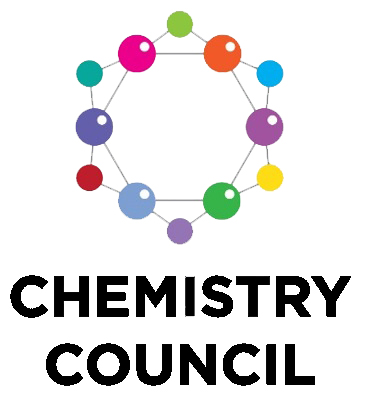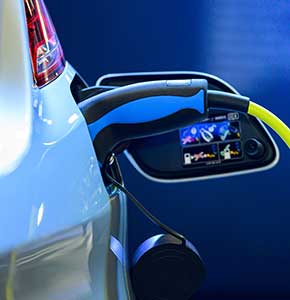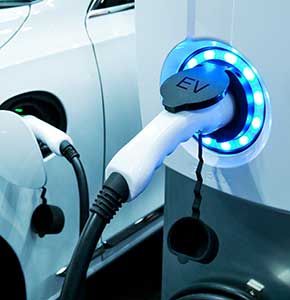4 May 2021
Battery recycling (Energising the UK battery supply chain - part 3)
Organised by:
SCI’s Materials for Mobility Group
Online webinar: 10:00 - 11:30 (BST)
Synopsis
Battery Recycling
It is estimated that the widespread adoption of electric vehicles (EVs) by 2030 could leave the UK with 600,000 tonnes (1.2 million m3) of Li-ion battery waste per annum by 2045-50. If the UK can integrate efficient battery recycling and manufacturing – joining the end of the supply chain to the beginning – it can reduce its dependency on long-distance imports of in-demand raw materials such as lithium, nickel, and cobalt.
Battery recycling will have its role in increasing the resilience of the UK’s battery manufacturing supply chain, reducing the carbon emissions associated with raw material extraction and shipping, and ensuring that valuable materials stay out of landfill.
For this workshop, SCI and the Chemistry Council Innovation Committee (CCIC) have organised a program of speakers from both industry and academia to cover the latest developments in EV battery recycling. These talks will be followed by breakout discussions between participants, enabling them to meet others working on these technologies, and discuss what is needed to make battery recycling work at-scale in the UK.
Energising the UK battery supply chain series – Introduction
A major focus of SCI’s work with the Chemistry Council recognises that the government in its Road to Net Zero, is banning the sale of all internal combustion engines by 2030. We must therefore act rapidly to scale-up an integrated UK battery supply chain, to adequately support the bourgeoning electric car industry.
As part of our programme to deliver this, SCI is bringing together chemists, suppliers, manufacturers and innovators at every point within the supply chain, and in doing so building the community that will address the challenges of scaling-up of electric vehicle production within the UK.
In parts 1 and 2, over 70 participants from industry and government have come together to discuss the needs of the community. Common themes identified in these workshops include:
- Scale-up at speed
- Developing standards for materials testing
- Skills and knowledge
- Next generation technology.
Attendees
This workshop is primarily designed to engage those actively working in or with the battery production industry, or policymakers whose decisions may affect it. Spaces are limited – therefore, if you are new to the ‘Energising the UK battery supply chain series’, and wish to attend this workshop, please send a 50–100-word description of your work to Will.Atkinson@soci.org, outlining how you fit into one of the above stakeholder categories.
Speakers

Andy Abbott is Professor of Physical Chemistry at the University of Leicester. His research is focussed on novel methods of material processing. He is part of the Faraday Institution’s ReLiB project investigating lithium ion battery recycling where new methods of recycling anode and cathode materials have been developed.

Ian Constance joined the Advanced Propulsion Centre as CEO in September 2015. Prior to this Ian worked with Ford Motor Company in Detroit where he was most recently Global Chief Engineer for Large Cars. In that position he led the product development activities for the Ford Mondeo/Fusion and Ford Taurus. The role involved all elements of the product engineering, design, manufacturing readiness and business case development with a very keen focus on future customer needs. Working on these product lines gave Ian wide experience of developing and integrating HEV, PHEV and high tech Gasoline and Diesel internal combustion engines into global platforms.

I am Business Development Director for Battery Materials Recycling at Johnson Matthey. A graduate in chemistry, I have worked for JM for 37 years in a wide variety of commercial roles mostly related to precious metals and platinum group metals technology. Before beginning to explore the business potential of battery materials recycling around 18 months ago I was responsible for JM’s global PGM recycling, fabrication and trading businesses which operate refineries and manufacturing sites in the UK, US and China. It is the world’s largest refiner of PGMs from secondary sources.
Programme
4 May 2021
- 10:00
- Welcome and introduction
David Bott, SCI - 10:05
- Advanced Propulsion Centre UK
Ian Constance, APC UK - 10:20
- Retaining value in recycled lithium ion battery material
Prof Andy Abbott, University of Leicester - 10:35
- Battery materials recycling: challenges & opportunities
Mark Bedford, Johnson Matthey - 10:50
- Breakout discussions
- 11:30
- Closing remarks
Accessibility Grants
SCI accessibility grants are available to support SCI members with disabilities, long term health conditions, those who require a carer, and members who are nursing parents to attend SCI events. Download an application form to apply for a grant.
Booking Process/Deadlines
Partners
Contact
Conference team
Tel:+44 (0)20 7598 1561
Email: conferences@soci.org











